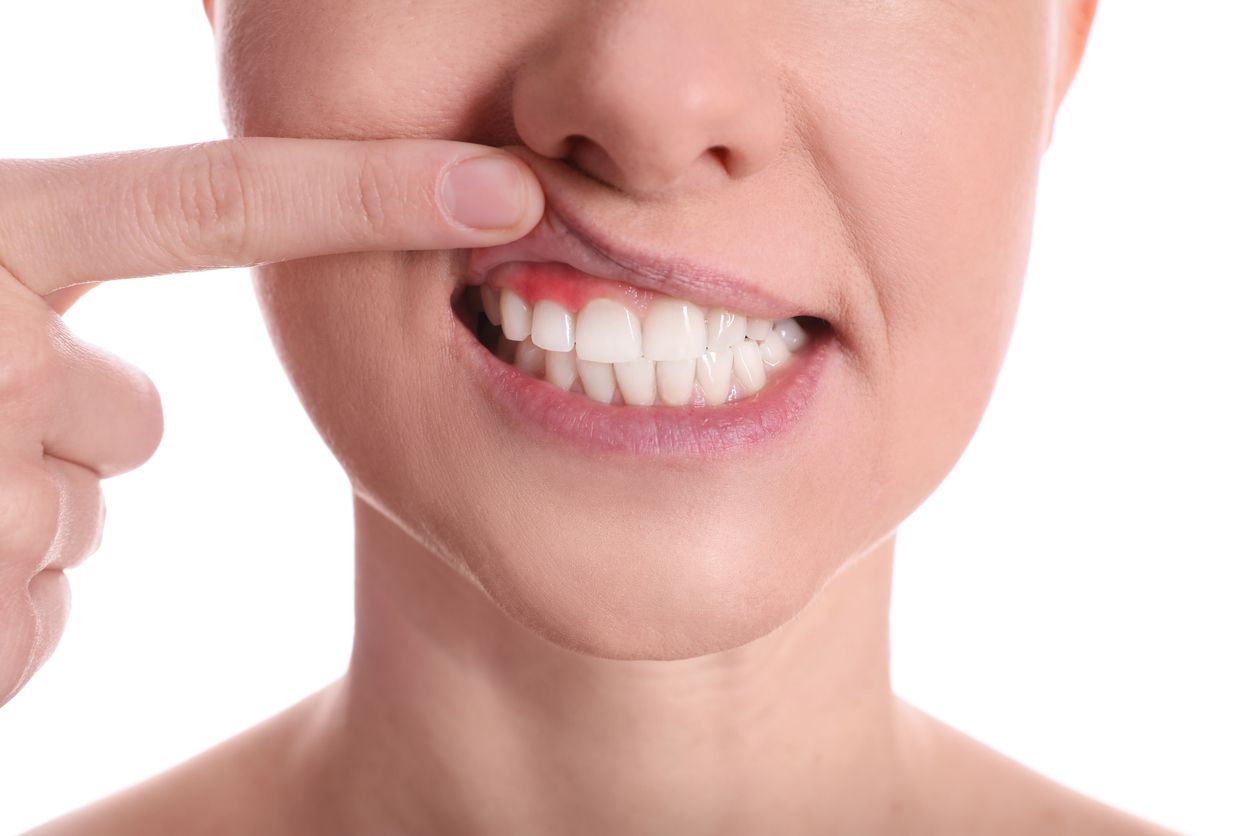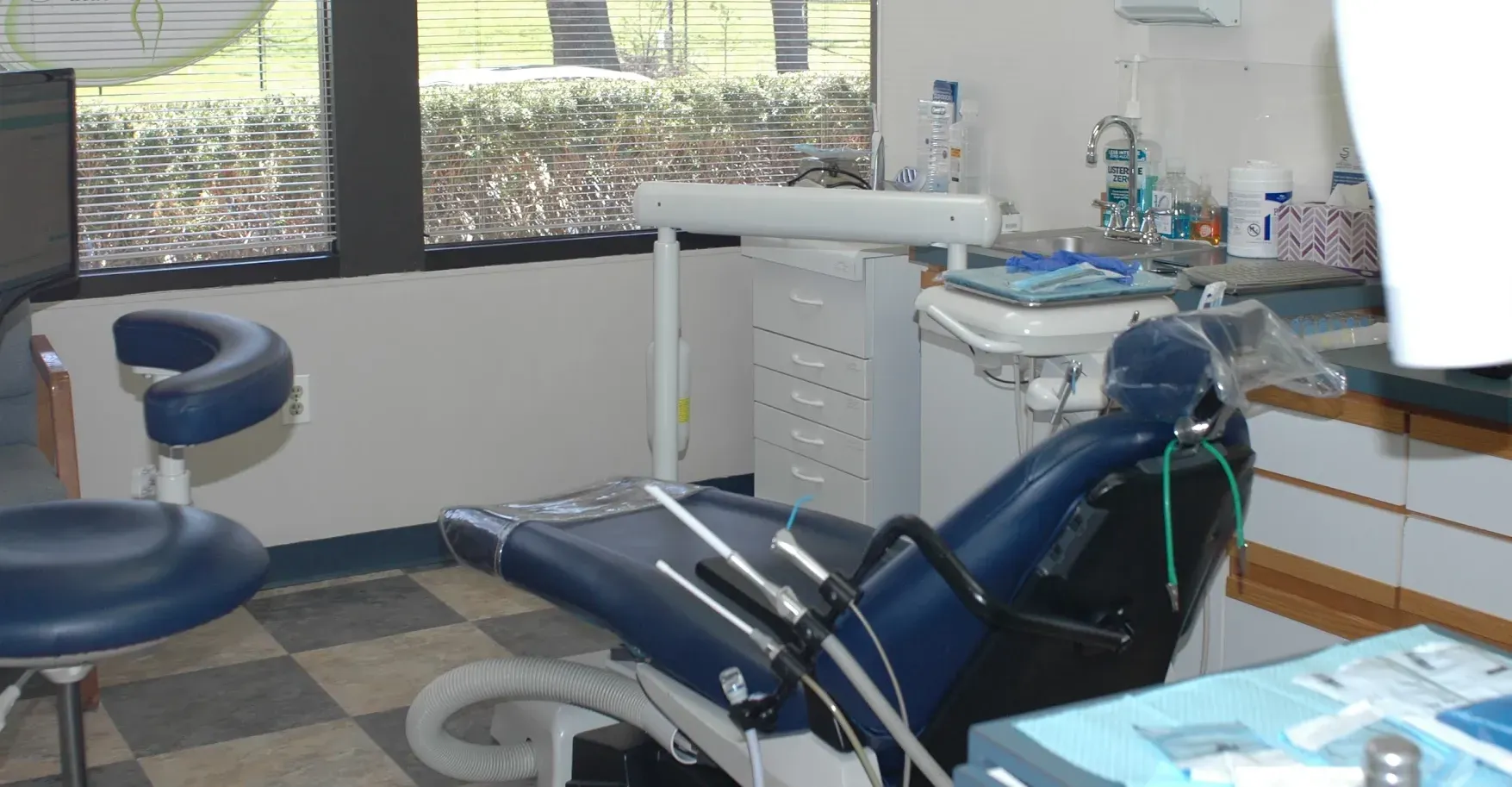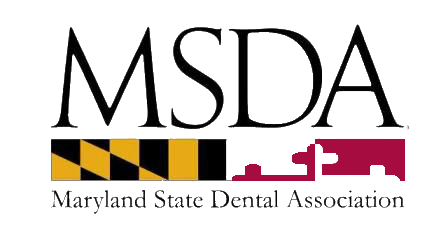Our Dental Services in Columbia, MD
At Smile Savers Dentistry, we offer a wide range of dental services to patients in Columbia, Maryland, and surrounding communities. Our goal is to provide expert dental treatment in a friendly, welcoming and comfortable atmosphere.
Due to Dr. Stewart’s training and expertise, we provide a very wide range of dental treatments, from basic cleanings to root canals and dental implants. No matter what your dental situation, we can help you get the dental care you need.

Preventions & Cleanings
Maintaining regular cleanings and examinations with our dental hygienists can help you avoid many serious dental problems and keep your oral health in great shape.

Cosmetic Dentistry
The beautiful smile you’ve always wanted can be yours. Cosmetic dentistry includes veneers, improved alignment, aesthetic fillings, replacement teeth and more.

General Dentistry
General dentistry includes all of the typical services you’d expect from a dentist, such as filling cavities, crowns, veneers, bridges, partial dentures and root canal treatments.

Dental Emergencies

Gum Disease & LANAP
We have the most advanced treatment on the market to help you overcome gum disease with the least tissue trauma and minimal pain.

Other Dental Treatments
We are dedicated to helping our patients with a wide range of additional dental services including help for TMJ problems, sleep apnea and tooth extractions.
Frequently Asked Questions About Dental Services
-
Why is Dental Health Important?
Your overall health depends on your dental health. Learn why it is important to maintain good oral hygiene and prevent dental disease.
Understanding the connection between your oral health and overall health is important. Learn how dental health can affect heart disease, diabetes and respiratory infections.
Dental Diseases Prevention: Understand the importance of good oral hygiene to prevent dental diseases like tooth decay and gingivitis. Learn how to avoid these conditions and their impact on your life by having regular dental cleanings and checkups.
Early detection of oral conditions: Learn the advantages of regular dental examinations for detecting oral problems at an early stage. Early intervention can help prevent cavities, gum diseases, oral cancer and other dental problems. This will reduce the need for expensive and extensive treatments.
Learn about the importance of regular dental cleanings to remove plaque and tartar. Learn how this preventive step can help to maintain healthy gums and teeth, preventing gum diseases and preserving dental health.
Discover how dental health can promote a fresher breath and a more confident smile. Maintaining oral hygiene can improve your self-esteem and social interactions. It also eliminates embarrassment due to bad breath or stained tooth.
Learn how to save money by prioritizing your dental health. Regular dental care and preventive measures can help you save money over time. Early intervention and preventive treatment are highlighted as more cost-effective options to complicated dental procedures.
Conclusion: Dental health is important for a healthy life. You can avoid dental diseases by practicing good oral health, getting regular checkups and receiving preventive treatment. Prioritize your dental health now!
-
What is a Healthy Oral Routine
Learn how to develop a healthy dental routine for optimal oral health. Learn how to create a healthy dental regimen, including the importance of regular dental exams, the benefits and methods for brushing, flossing, and mouthwash.
A healthy dental routine is essential to maintaining optimal oral health. Learn how to brush and floss your teeth, as well as why it is important to have regular dental examinations.
Brushing Techniques: Learn to brush properly for plaque removal and cavity prevention. Fluoride toothpaste and soft bristled brushes are important.
Flossing Tips: It is important to floss regularly. Your toothbrush will not reach food particles and plaque. Learn how to floss properly and at what frequency. Discover the benefits of incorporating flossing into your daily routine.
Learn about the benefits of including mouthwash in your daily dental routine. Learn how mouthwash reduces plaque, can improve breath and prevent gum disease and tooth decay.
Healthy Eating Habits - Learn how your diet can affect dental health. Discover which foods can promote healthy teeth and gums, and which ones can cause tooth decay. Include tips for maintaining a healthy diet.
Regular dental checkups are important. These visits are important for detecting and preventing dental problems. They also provide professional cleanings, and can allow early intervention.
Other considerations: Incorporate additional factors into your dental care routine, such as changing your toothbrush on a regular schedule, avoiding smoking, and addressing habits like teeth grinding or clenching.
A healthy dental routine is essential to maintaining optimal oral health. By following a healthy dental routine that includes flossing, mouthwash, and effective brushing, you can achieve a healthy and confident smile. Start today with a healthy routine for your teeth and enjoy the benefits of good dental health for years to come.
-
What are Some of the Most Common Dental Issues?
There are many dental problems. The most common dental issues are listed below.
Dental caries or cavities is another name for tooth decay. Plaque bacteria produce acids that erode enamel. If left untreated, decay can lead to pain, infection, and even tooth loss.
Gum disease is an infection of the gums and surrounding tissues. The most common form is gingivitis. This condition is characterized by red, swollen gums. If not treated, it can lead to periodontitis, which causes bone loss, gum recess and tooth instability.
It can be due to poor oral hygiene, gum disease, dry mouth, specific foods, or health conditions. It can affect self-confidence and social interactions.
Tooth Sensitivity: Tooth sensitivity occurs when the enamel is eroded, exposing the dentin underneath. This can also happen when the gums recede, exposing the roots. It can cause discomfort or pain when you consume cold or hot food or drinks, or even expose air.
Acid attacks can cause erosion of the teeth. Acidic foods, drinks, medications, acid reflux, and citrus fruits can cause tooth erosion.
Tooth loss can be caused by many factors, including gum disease or advanced decay of the teeth, trauma, and untreated dental problems. Missing teeth affects oral function, self-esteem and appearance.
Oral cancer is a malignant growth of cells in the oral cavity. This includes the lips and tongue, as well as the throat and floor of the mouth. Early detection is the key to successful treatment.
The misalignment or teeth or jaws is called malocclusion. This can cause bite problems, TMJ disorders (temporomandibular joint) and teeth grinding.
Dry Mouth (Xerostomia). The glands that produce saliva are not producing enough to cause dry mouth. Dry mouth is caused by medical conditions, medications or radiation therapy. If you don't have enough saliva, your risk of tooth decay, gum disease, and infection increases.
Teeth Grinding or Bruxism can cause jaw pain, tooth wear and sensitivity. Stress, anxiety, and abnormal biting are all factors that can contribute to bruxism.
Maintaining good dental hygiene and visiting the dentist regularly is essential to maintaining optimal dental health.
-
What are the Services that a Dentist Provides?
Dentists provide a wide range of services to help maintain and improve oral health. Dentists provide a wide range of services.
Dental Exams. Dentists perform comprehensive dental examinations to assess the oral health and identify any dental abnormalities or problems. They also develop treatment plans. This includes evaluating the teeth, gums, and jaw.
Dental cleanings, also known as dental prophylaxis, involve the removal and staining of plaque and tartar. Dental hygienists, along with dentists, use specialized instruments to clean teeth and prevent gum diseases.
Dental Fillings. Filling cavities is done by dentists using composite resin (silver fillings) or amalgam. Fillings improve the appearance and function of a tooth.
Root Canal Treatment may be necessary when decay or injury reaches the nerve (pulp) of a tooth. Dentists remove damaged or infected tissue, disinfect and cleanse the root canal before sealing it with a filling. The tooth is not extracted.
Tooth extractions: Dentists extract teeth if they are badly decayed, damaged, have impacted teeth, or are crowded. The dentist removes the tooth gently, while making sure that the patient is comfortable. They also give instructions on how to care for it afterward.
Dental Crowns and Bridges Dental Crowns or custom-made caps cover damaged teeth and restore strength and appearance. Bridges are used to replace damaged or missing teeth. They anchor artificial teeth to adjacent natural teeth or implants.
Dental implants are titanium posts surgically implanted in the jawbone. They replace missing teeth. Dentures, dental bridges and crowns can be anchored to them.
Dentures are removable prosthetics that dentists fit to replace missing teeth and surrounding tissue. Dentures are used to replace an entire arch of teeth or partial dentures if only a few natural teeth remain.
Orthodontic Treatments. Orthodontic treatment can be provided by dentists to correct misaligned teeth and jaws. They can be traditional braces or clear aligners (such as Invisalign) or other devices designed to improve dental aesthetics and alignment.
Cosmetic dentistry: Cosmetic dental procedures are offered by dentists to enhance the appearance of teeth and smiles. These procedures may include gum contouring, dental veneers, and bonding.
Gum Disease Treatment: Dentists can treat gum disease by treating gingivitis, periodontitis and scaling and root planing (deep cleaning).
Oral cancer screenings are performed by dentists to detect precancerous and cancerous conditions. Early detection increases your chances of a successful treatment.
Dentists offer a wide range of dental services. Consult Dr. Patel for personalized advice and a diagnosis that will suit your needs.
-
How Long is a Complete Dental Examination?
The duration of a dental examination depends on a number of factors. The length of a complete dental exam depends on several factors, including the patient's oral health, their dental history, and the procedures involved. The average comprehensive dental exam lasts 30 minutes to an hour. This is an estimate, and the actual time may vary.
Dr. Patel will conduct a comprehensive oral examination that includes:
Medical History Review Dr. Patel will review your medical history, including any current health conditions or medications that may affect your dental treatment.
Oral Exam: Dr. Patel will examine all of your oral structures, including your teeth, gums, tongue and cheeks. The dentist will look for signs of oral cancer, gum disease, or decay.
You can take X-rays to view your teeth, jawbone, and other structures. This helps us identify issues that may not be visible during a visual exam. Examples include cavities between teeth or teeth that are displaced or impacted, as well as bone loss.
Gum Health Assessment: Dr. Patel will use a periodontal probing instrument to measure the depths of the gum pockets. This is to assess your gum health, and look for any signs of gum disease.
Dr. Patel will examine your bite and jaw alignment. A dentist may also look for signs of teeth grinding or clenching.
Discussion and treatment planning. The dentist will discuss the results of your exam, address any concerns you may have, and, if necessary, create a personalized treatment plan. You may need to have fillings, cleanings, or orthodontic treatment.
It is important to be aware that some procedures, such as oral cancer screenings and dental cleanings, may be included in your examination. This could result in a longer appointment.
You should speak directly to Dr. Patel regarding the duration of your dental examination. You can get the most accurate information based on their experience and your needs.
-
How Often Should a Person Visit the Dentist on Average?
Dental visits depend on many factors, including oral health and general health. They also take into account risk factors, dentist recommendations, and other factors. A person should visit their dentist for a routine checkup and cleaning at least every six months. This schedule allows for regular monitoring of dental care, prevention, and early detection of any dental issues.
Six-monthly visits to the dentist allow for early detection of problems like oral cancer and gum disease. Professional dental cleanings remove plaque, tartar, and stains that are missed when brushing and flossing.
Be aware that some people may require more frequent dental visits based on their specific oral health needs. You may need to visit the dentist more frequently if you have a history of gum disease, a weakened immune system or certain medical conditions.
A dentist can make recommendations based on an assessment of your dental health. They may suggest more frequent dental visits if you are undergoing ongoing dental treatment or have specific risk factors.
You should always discuss the frequency of your dental appointments with Dr. Patel, depending on your individual circumstances. Dr. Patel can provide you with customized recommendations that will help you maintain good oral hygiene.
-
What is Routine Dental Care?
Routine dental cleanings are also known as dental hygiene or dental prophylaxis. This is a preventive dental cleaning that can be performed by a dental hygienist or dentist. This includes the removal of plaque, tartar and stains from teeth, along with other oral health assessments. What happens during a cleaning of the teeth?
Assessment: A dental hygienist examines your teeth and gums for signs of dental disease, such as tooth decay or gum disease.
Scaling: Using specialized dental instruments, the hygienist removes plaque and tartar from the surface. It includes areas that are hard to reach. It involves gently scraping off the deposits without damaging the enamel.
Professional teeth cleaning - After scaling, the dental professional uses a gritty toothpaste and an electric toothbrush with high power or a rubber cup that contains a polishing agent. The surface stains are removed, and the teeth feel smoother.
Flossing: The hygienist will floss between teeth and along the gumline to remove plaque and debris that may not be removed by brushing.
Fluoride Treatment (optional): Some dental cleanings include a fluoride treatment. Fluoride is available as a gel, foam or varnish. It increases the resistance of teeth to decay by strengthening their enamel.
Oral Health Instructions: Dr. Pate or the hygienist will give you oral hygiene instructions and tips during the cleaning. They may also provide information on how to maintain good oral health in your home. You may be asked about your diet or any other questions regarding oral health.
Routine dental cleanings play a crucial role in maintaining optimal oral health. They can prevent gum disease by removing plaque and tartar. These devices also help to promote fresh breath, and can be used for early detection.
Dentists recommend cleanings every six months. The frequency of cleanings can vary, depending on your needs and those of your dentist. Regular cleanings keep your teeth and gums healthy and will help you to maintain a bright, confident smile.
Take charge of your dental care today! Schedule an appointment with Dr. Patel to start prioritizing your healthy smile. Don't wait until problems occur to take proactive measures to maintain optimal dental health. Contact us at 410-220-6883 to schedule your next dental cleaning or treatment.
You can enjoy the benefits of a healthy smile by investing in it. Improve your dental health now!
Contact Us
Smile Savers is accepting new patients however, we DO NOT accept HMO's, Medicaid, or other State Insurance Programs. If you require financial assistance please contact our office regarding our membership plan and financing options.
Services
We will get back to you as soon as possible
Please try again later









